I’ll admit it, I wasn’t really into my husband the first time I met him at a club. But then he told me he was a pilot, and I was like, “Hello!”.
Suddenly this man in front of me was now more attractive and interesting. I had never met a pilot before, so of course I wanted nothing more than to sit down and ask him a million questions while the rest of our friends partied the night away.
Five years later, we’re married, have traveled the world together, and boy have I learned a lot about the aviation industry. Our marriage is going great and we have found ways to work around his hectic schedule. Because we don’t have much time together, we make sure we make the most of each others company when we have it. For example, for his birthday I always find great jokes on pilot t-shirts which he loves to show off to his pilot co-workers. It can be hard but we make it work. Here are 10 things I learned from being married to a pilot:
Pilots don’t make as much money as you think

So I met my dreamy pilot and thought I would now enter the lifestyle of the rich and famous. WRONG. When I met Alex, he was working as a regional airline pilot for an American company. He had four years of flight experience on a twin-engine jet and was making, wait for it… $33,000 a year.
As a teacher, I was making more, and while I molded young minds, he was transporting hundreds of passengers a day for mere pennies. Once I learned of this shocker, I started chipping in a lot more.
If you’re a reserve pilot, nothing is guaranteed
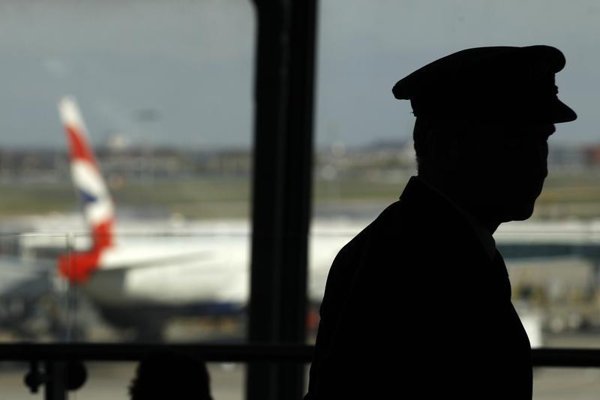
When working in the U.S., Alex was “on reserve”, meaning he sat around the airport all day waiting for a pilot to call in sick so he can fly. There were days he’d sit at the airport for 12 hours in uniform, pacing between the terminals, eating the same eatery food and trying to catch a few minutes of sleep here and there.
If he got lucky, a more senior pilot would be out for the week and he had a “line”, which meant he knew his flight schedule for five consecutive days and was in a different hotel each night.
Pilots’ schedules suck
While in the U.S., Alex would be away for five days at a time and home for two. Rarely did I ever see him on the weekends. Now, flying for an international carrier, Alex is on duty and away flying for 23 days, then home for 8-9 consecutive days. That’s right ladies and gents, I see my husband for about a week a month.
Often, to catch a flight back to work, he has to use one of his days off as a commuting day. He can fly for free on his airline, but their U.S. destinations are limited, so he pays full fare to meet his airline in New York, Atlanta or Dallas, and then spends 16 hours to get all the way back to Taiwan before he can be the flying pilot.
Pilot’s accommodations are not as glamorous as you might think
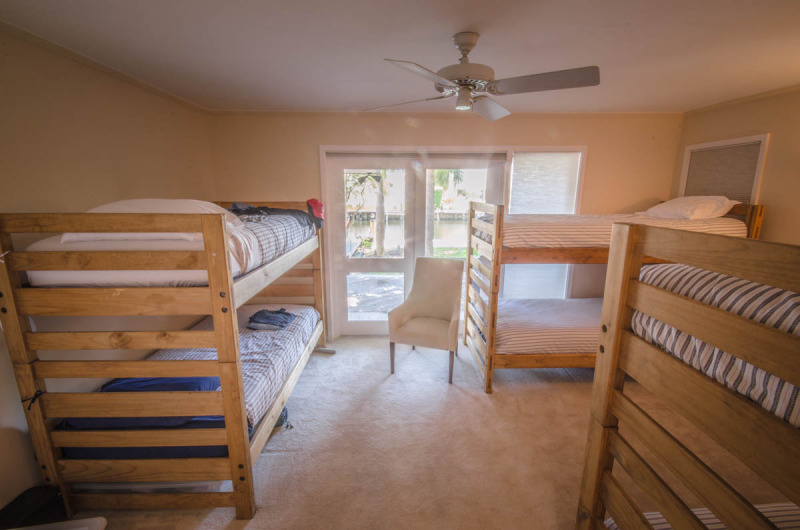
In the U.S., there are no accommodations. Pilots are stationed at a base airport and often choose not to move their entire family there, thus the idea of Crash Pads. A Crash Pad is an apartment or home filled with bunk beds that holds as many pilots as possible.
For Alex, there were eight pilots in a two-bedroom apartment. Granted, they weren’t all there at the same time, but it’s no way for grown men to live. Abroad, many countries offer either comfortable company housing or allowance.
Seniority rules
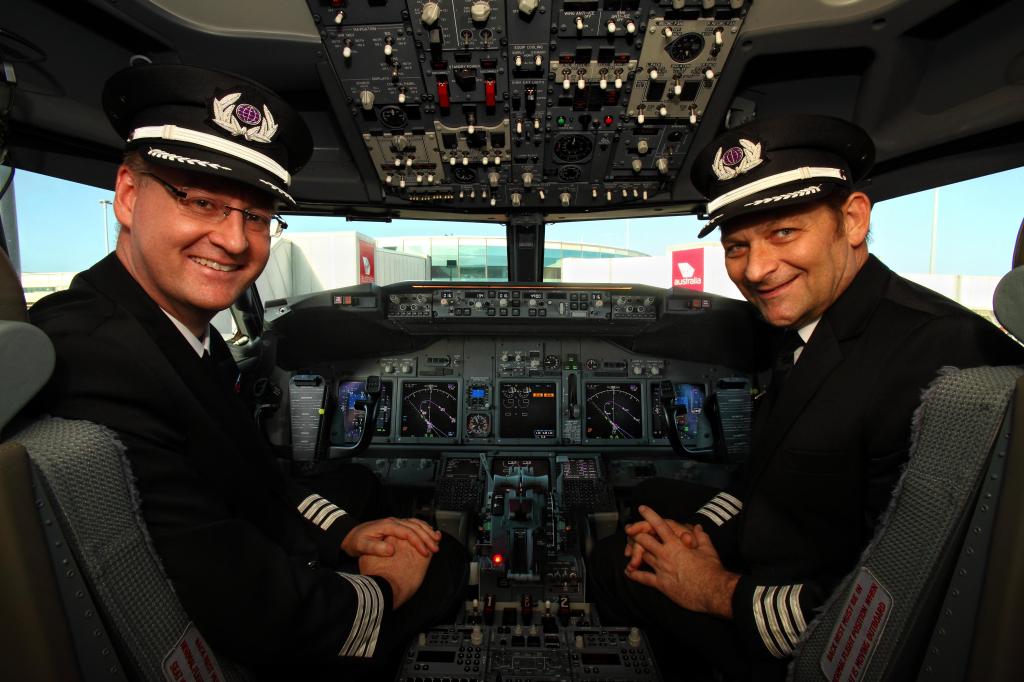
Everything in the airline industry is based on seniority. Friends ask me why Alex won’t just come back and work in the U.S. and this is what I tell them: Despite having 10 years of flying experience, Alex would have to return to work as a First Officer on reserve (see above) making less than half of his current pay.
Pilots with less flight experience but longer company time will have priority over him in terms of schedule, plane size and promotions. It just doesn’t make sense, your time with a company counts for more than time in the air. So basically, once you get to a good place in your aviation career, stay there so you can grow; bouncing around is not ideal.
Fatigue is real – and dangerous
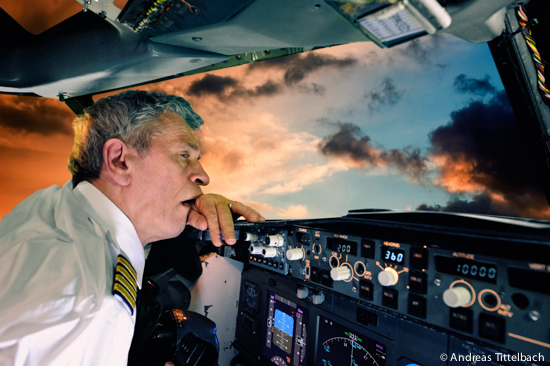
Whether it’s flying six shuttle flights a day (quick 2-3 hours between U.S. cities) or 15 hours across oceans, piloting is exhausting. International layovers average between 20-28 hours, whereas in the U.S., the minimum rest time is eight hours.
Think about this: Pilot lands at 10:00pm and needs an hour to shut down the plane, complete paperwork and get to the hotel. He can finally sleep by around 11:30pm, but needs to be up at 5:30am to report for work an hour later.
“Rest Time” is counted from the minute you shut down the plane to the minute you turn it back on, so while that may be eight hours, it’s definitely not all rest time. Keep in mind, flying is not sitting at a desk. Pilots need to be focused and engaged the entire time, isn’t that how you’d want your pilot to be?
Colleagues can be cutthroat
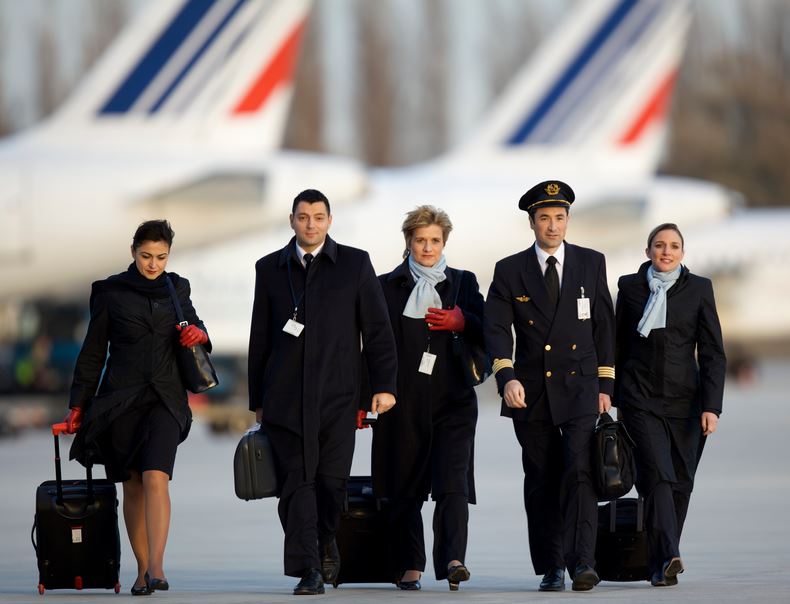
For the most part, pilots and flight attendants are friendly with one another (but international companies don’t want them to be too friendly, so they place them in separate hotels on layovers). However, where my husband currently works, the flight attendants are told to “keep an eye on” and report pilots for misbehavior.
This sounds reasonable, until you understand that taking cookies from the galley without asking a flight attendant or being in the restroom too long is means for a write up. Kid you not!
Airplane food – enough said…

If the passengers aren’t offered food, neither are the pilots. Luckily for Alex, he now flies internationally and doesn’t have to pay for peanuts. He actually gets a meal or two on every flight and it’s custom ordered.
Each month he can select from a meal plan such as seafood, Halal, vegetarian, etc., and the food is loaded onto the plane and labeled with his name. It’s never the same food offered to passengers, not sure if that is a good or bad thing.
Pilots aren’t allowed in airport lounges
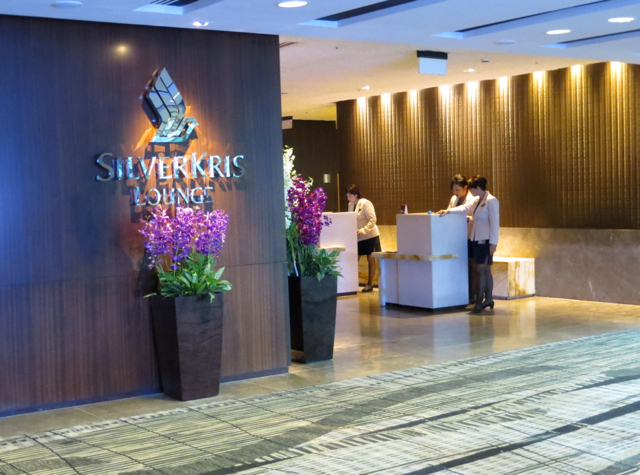
Ahhhh, you have four hours between connecting flights and you spot your airline’s lounge. As a pilot, you think, YES! I can go in, get some food and relax, right? WRONG! Even in uniform, pilots cannot enter the lounges, whether for their airline or another.
Although the uniform looks good, it can get annoying
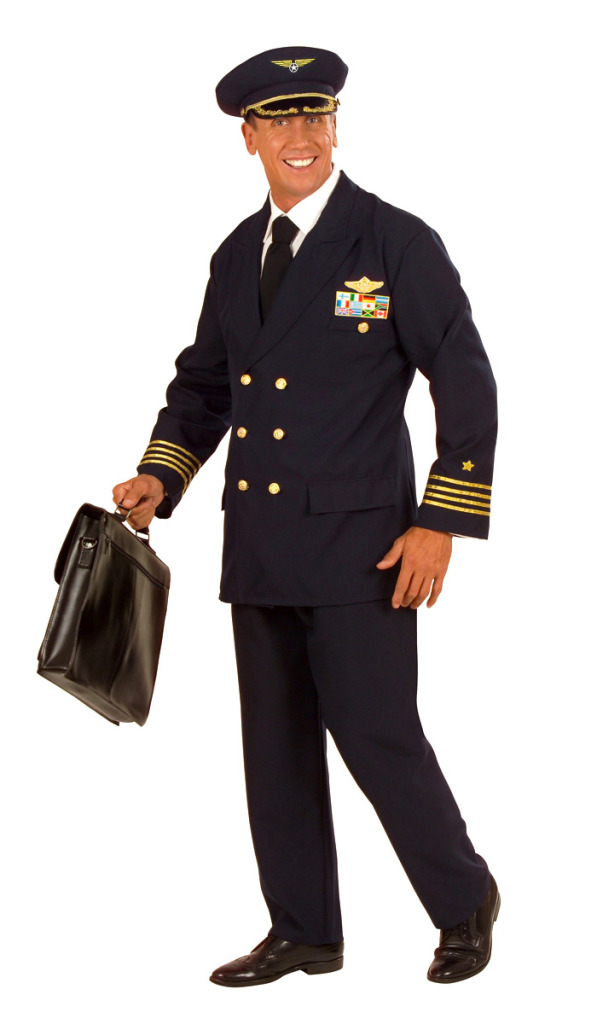
Some places are sticklers; you have to wear every piece of the uniform, including the company belt (yes, Alex’s colleague got written up for that!), but I get it, it’s nice to look presentable and represent your company well.
In the U.S., they’re more lenient about uniforms; you can pick your own slacks, shoes and belt, then use company-provided credit to go on their uniform website and select your uniform shirts. They provide the epilates and tie, but a hat is out of your own pocket. Internationally, everything is provided for you, even the luggage, and you need to wear and use all company-provided items.
Standby flights can end up costing more than normal fares
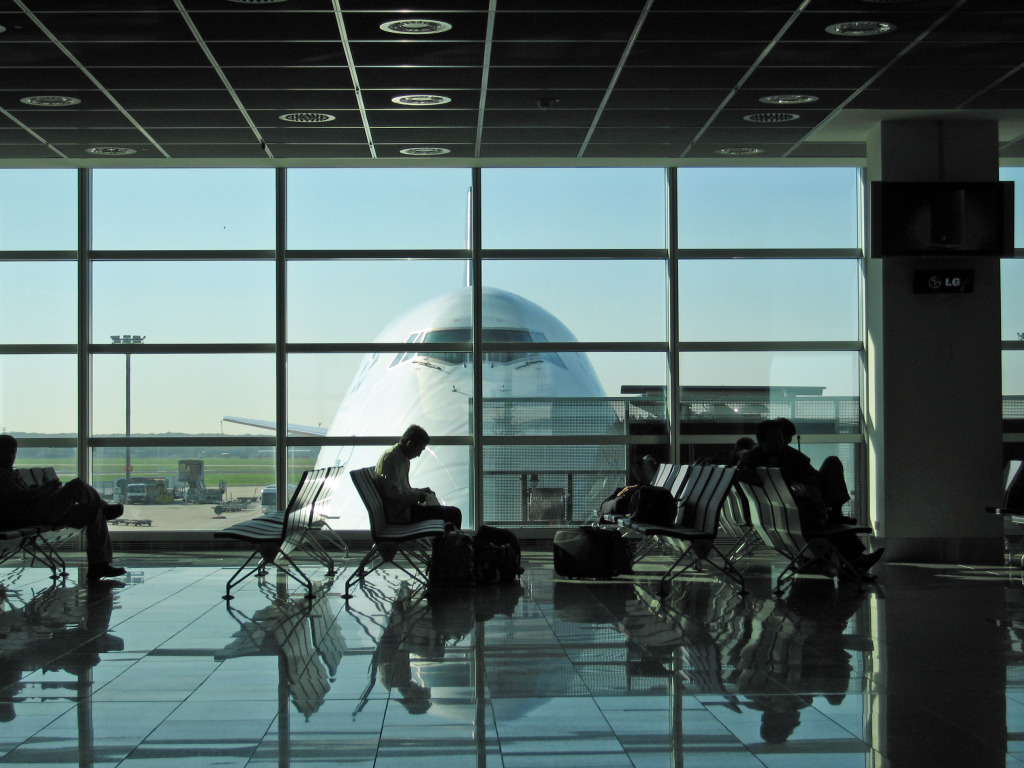
Yes, as a pilot and his wife, we are entitled to standby tickets. Instead of full fare, you can pay a discounted rate plus taxes for any airline your company has an agreement with. A round-trip ticket from Washington, D.C. to New York costs $100 on standby and $130 full fare if you buy in advance.
So which would you rather? Save $30 and be stuck at an airport all day waiting for a seat to open up? Not I. I’ve gotten screwed over far too many times and ended up paying more for a last-minute ticket.
Point is, standby can work if you are flexible and don’t have hotel reservations or a specific date to arrive or leave by, but be prepare to wait it out.
Being a pilot isn’t as glamorous as one would think. U.S. pilots are overworked and underpaid. Their job is stressful and they aren’t appreciated within their industry. But I’ll tell you that the most important thing I learned about pilots is that they are passionate; they love planes, they love to fly, and they love to talk about aviation.
While I have exposed a lot of the nitty-gritty, I will tell you that there are plenty of benefits of being in the airline industry. On his days off, I have 100% of my husband to myself. He isn’t tied down to a computer and catching up on work and he isn’t conference calling or replying to emails. He’s off and he’s fully present in my life. Piloting isn’t a job, it’s a hobby, it’s a life choice and many of them – and their families – would have it no other way.
WE SAID THIS: Don’t miss ” 10 Great Reasons to Be a Pilot – By a Pilot’s Wife“


